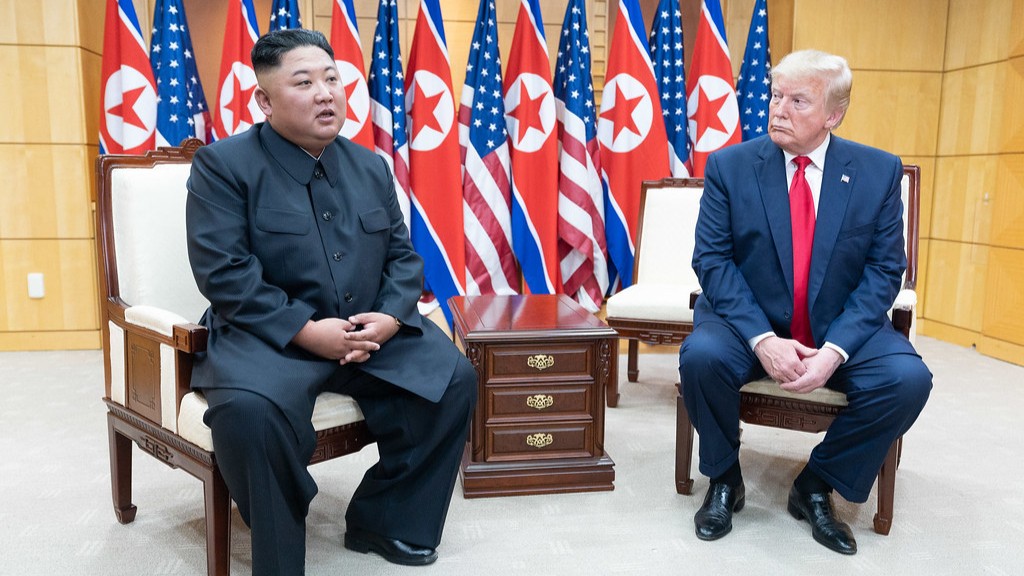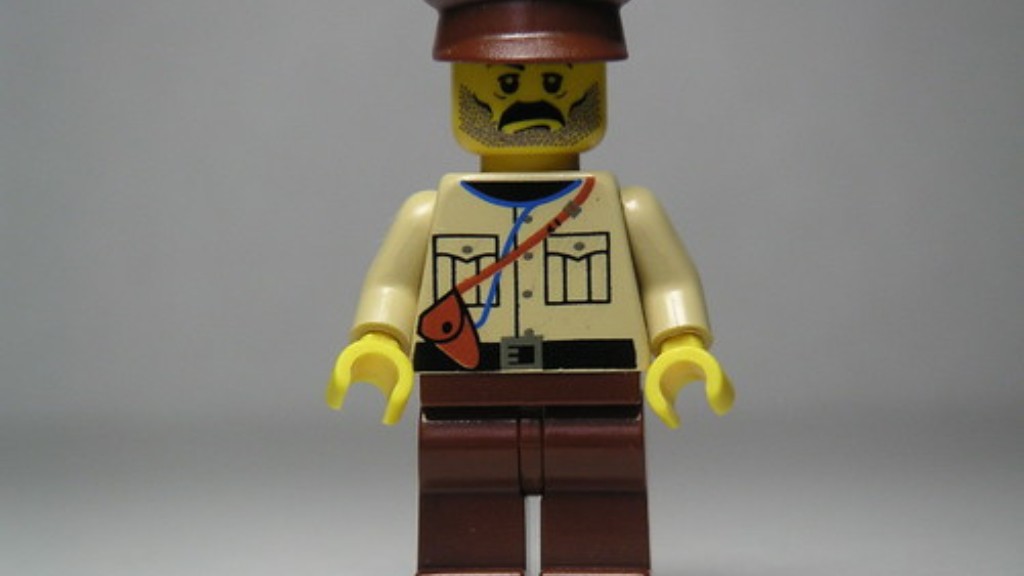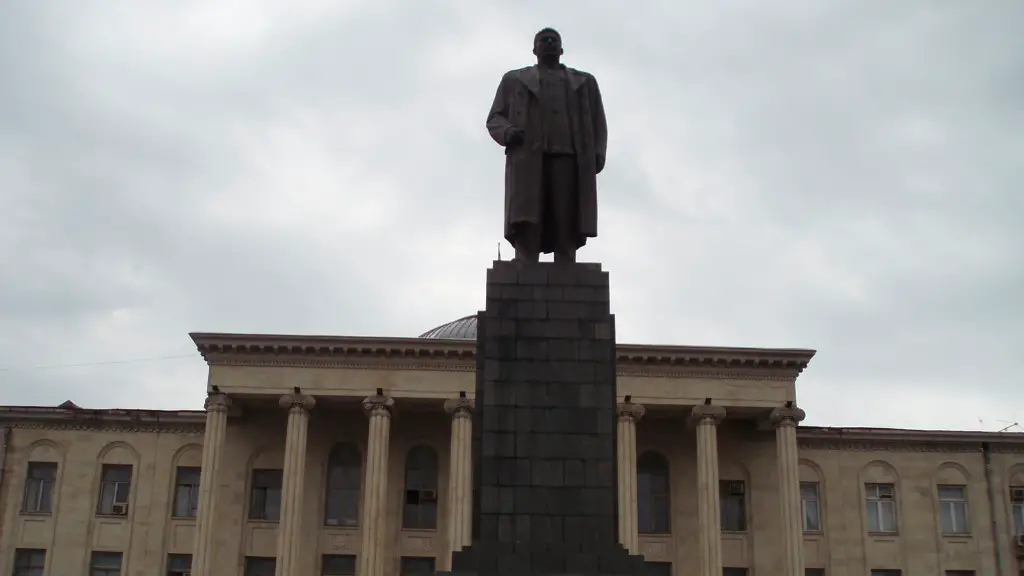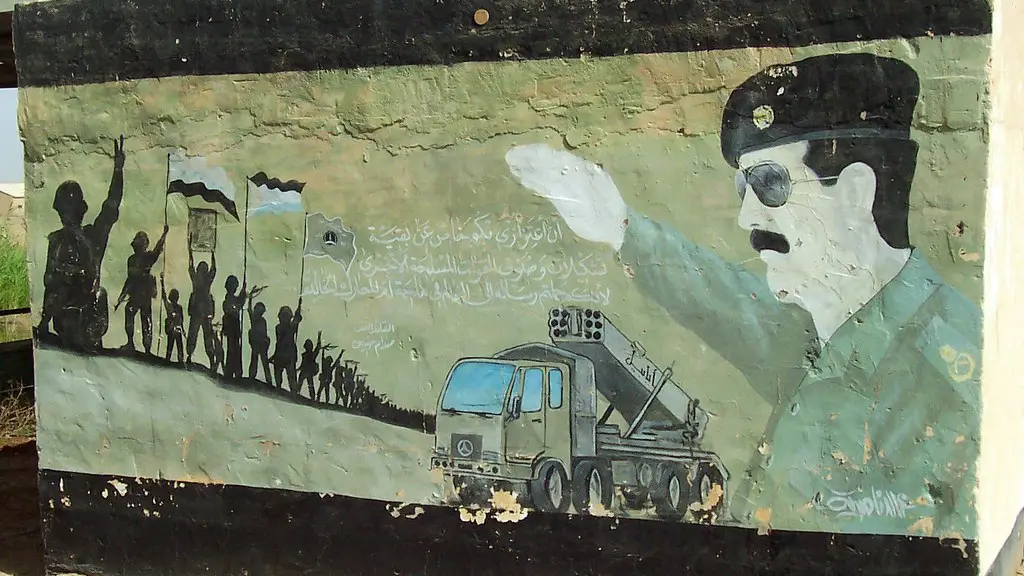Muammar Gaddafi: A Deeper Look
Muammar Gaddafi is remembered by many people as a ruthless dictator who ruled Libya for 42 years. Various events, such as his persecution of opponents and attack on civilians, have tarnished Gaddafi’s public image. Today, however, it is worth delving into a deeper understanding of the situation in Libya under Gaddafi’s rule. Was Muammar Gaddafi really a bad leader, or merely portrayed in a negative light by the media?
In 1969, Muammar Gaddafi overthrew the monarchy in Libya, promising a more democratic government which would focus on the well-being of the Libyan people. Although promising democratic reforms, his autocratic rule began shortly afterwards. He restricted basic freedoms such as freedom of the press, and began silencing dissent.
Under Muammar Gaddafi, Libya saw significant economic growth. Gross Domestic Product per capita quadrupled from $3,000 in 1970 to $12,000 in 2010. This was largely due to his establishment of the Great Man-Made River project, a multi-billion dollar system of pipes and pumps which transported water from large aquifers in the Sahara to inland cities. Moreover, Gaddafi also chose to invest in education, healthcare and infrastructure rather than military spending. It seemed that his prioritization of civil welfare was having positive results.
However, the benefits of Muammar Gaddafi’s rule were somewhat limited to a privileged segment of the population. Despite improvements in the economy, corruption and nepotism were rampant. Furthermore, unemployment rates hovered at around 20%, despite Gaddafi’s promise to reduce it. Additionally, many political opponents were held in prisons without trial, or exile was imposed upon them.
It is clear that Gaddafi’s rule was problematic, but the media often exaggerated his perceived wrongdoings, and disregarded his impressive development efforts. The decision to intervene and overthrow Gaddafi followed a highly disputed charge of organizing a genocide in the town of Benghazi, which has been proven to be false. In the aftermath of the uprising against Gaddafi, civil society activists, who called for human rights and transparency, were pushed aside by Islamist militias as the country plunged into a state of chaos.
The situation in Libya after Gaddafi’s death is of great concern. Gaddafi’s fall brought about an imminent threat to civilian lives and an unpredictable, insecure future. On the political, economic and social levels, it is a mess in Libya and a balance between democracy and chicanery that the country will take a long time to achieve.
Unsolved Human Rights Violation
Muammar Gaddafi was charged with a long list of human rights violations, including political killings, torture of prisoners and large-scale repression. His rule was harsh and oppressive, and during his 42-year rule, nobody dared to speak out against his government. After he was overthrown, many of these violations came to light. But it wasn’t only the victims who suffered; their families have gone through a long and arduous process of seeking justice for them.
Despite the UN’s mandate to investigate and prosecute Muammar Gaddafi’s regime for its abuses, there have been limited steps taken in this regard. Although the Gaddafi regime was brought to the International Criminal Court in 2011, the court has not put him on trial, and many are calling for the court to hear more cases related to the regime’s atrocities.
The lack of prosecution for Muammar Gaddafi’s human rights violations is a major issue, as it leaves victims and their families without any form of recourse or closure. It also perpetuates a culture of impunity and disregards the rule of law.
Accountability is key to establishing a stable and secure environment in Libya. Hence, it is imperative that international actors, such as the UN and ICC, focus on prosecuting perpetrators of human rights violations in order to achieve justice.
Post-Gaddafi War in Libya
After the fall of Gaddafi, Libya descended into a 5-year civil war. Two rival governments, the elected Government of National Accord in the west and the Libyan National Army in the east claimed control over the country. This civil war has had a huge impact on the people of Libya, with over 4 million people affected by the conflict, 1.6 million internally displaced, 3.5 million in need of assistance and hundreds of thousands of people fleeing the country.
Human rights abuses in Libya have been rampant during this war, with mass killings, torture and even chemical weapons allegedly used. In addition, foreign powers such as Russia, United Arab Emirates and Egypt have supported one side of the conflict and exacerbated the crisis.
Furthermore, the war has had a detrimental effect on the Libyan economy. The warring governments have spent billions on military expenses, causing a severe shortage of government funding for basic services such as healthcare and education. Furthermore, the war has damaged crucial infrastructure, leading to an economic crisis that has left Libya’s most vulnerable population at risk.
The international community needs to step in and bring a resolution to the civil war in Libya. Negotiations between the warring factions and foreign powers must take place, in order to bring an end to the conflict and restore stability and peace in Libya.
The Unresolved Effects of Gaddafi’s Rule
Muammar Gaddafi’s rule has had far-reaching consequences in Libya, with the country still feeling the effects today. Since the fall of Gaddafi, the country has been in a state of turmoil, with millions of people affected. The civil war has caused immense destruction, damage to infrastructure and a severe economic crisis.
Additionally, the human rights violations that occurred under Gaddafi’s rule remain unresolved, with many victims and their families still searching for justice. It is clear that the international community needs to take action and swiftly put an end to the war in Libya and pursue accountability for the victims of Gaddafi’s rule.
Finally, the death of Muammar Gaddafi in 2011 and the subsequent civil war have brought to light the fragility of Libya’s institutions. In order to prevent the same from happening in the future, a thorough reform of Libya’s political and economic institutions must be conducted. This will ensure a stable and secure environment for the Libyan people and ensure that the country can begin to rebuild and recover.
The Legacy of Gaddafi in Libya
Muammar Gaddafi left an indelible mark on Libya and its people. Despite his seemingly totalitarian rule and decades of human rights abuses, Gaddafi also brought positive impacts during his rule. From largely increasing the GDP to investing in infrastructure and healthcare, Gaddafi made significant developments to the Libyan people in terms of quality of life.
Furthermore, he spent billions of dollars on housing, providing millions of low-income families with the support that they desperately needed. While Gaddafi’s legacy is certainly mixed, the developments that he made should not be overlooked.
However, in order for Libya to move forward and recover from its current crisis, a thorough reform of Libya’s political and economic system is required. This must take into account the views of the Libyan people, taking into consideration their needs, concerns and aspirations.
In addition, the international community needs to take a greater role in bringing stability to Libya and pursuing justice for the victims of the Gaddafi regime. Until these measures are taken, Muammar Gaddafi’s legacy will remain in the hearts and minds of the Libyan people.




